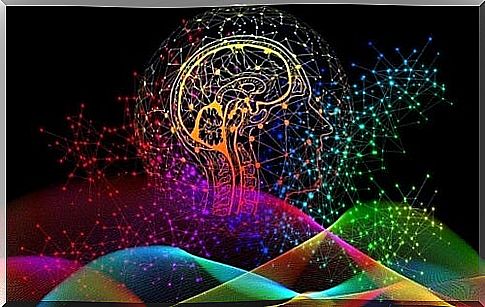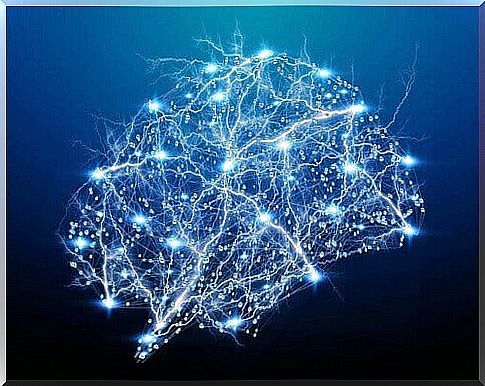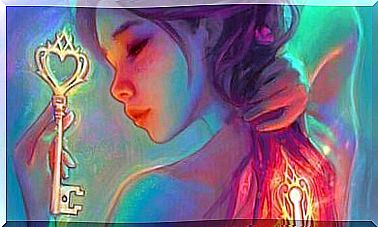Brain Fingerprints: What Are They?

We are made of cells, tissues, a beating heart and an outer skin that protects us, but also of memories. Lived experiences trace the fingerprints of the brain ; so much so that no two brains are exactly alike. Each of us is unique and exceptional.
We could say that our life does not emerge only in everything that is lived. How we remember each of these experiences defines who we really are. We live in our ego shaped by memories, by everything perceived and by the way we interpret it, and then store it in the vast treasure chest of our memory.
This very special, complex and transcendental process makes us all so different. It is certainly true that the organization and structure of the brain are universal. However, on a deep level and especially in terms of the way it is organized and the connections it creates, these are unique and unrepeatable neurological signatures for each of us.

What are brain fingerprints?
Although neuroscience is giving us more and more answers and information about the brain, there are still great doubts regarding this organ. To such an extent that it raises almost the same mysteries of the universe. We do not yet know, for example, how to restore or remedy the lost memory of an Alzheimer’s patient.
We know how to intervene in the case of a broken leg, but we do not know how to fully recover the functionality of a patient who has suffered a severe head injury or how to deal with a child with a severe autism spectrum disorder. We limit ourselves to facilitating their quality of life, rehabilitating them as much as possible, but without facilitating their total and absolute normality.
Despite this, continuous progress is being made and the hope of achieving this goal is palpable. Just a few days ago, the University of Rochester in New York took a big step in understanding the secrets that are nestled in our brains. We know, in fact, that each of us has our own neurological signatures and that our identity resides in them.
The brain networks that shape memories and sensations create our brain fingerprints
The research study, led by Dr Andrew James of the University of Rochester, was published in November 2020 in the scientific journal Nature Communications . The study reveals the following:
- Each person builds their own memories, using specific brain areas. However, the brain creates networks, which are different neural connections depending on how we integrate each memory.
- For example, every experience and sensation is also filtered by an emotional universe. Sometimes the images or experiences of the past are wrapped in concrete emotions (colors, smells).
- All of this creates distinct neurological signatures. Each experience forms brain organization networks that create a kind of fingerprint (or brain print) unique to each individual.
Discovering how each of us organizes their memories
One of the challenges facing neuroscience right now is getting more information about brain fingerprints. Cognitive science also comes into play here , trying to find out how we organize and manipulate memories. But what purpose can all this serve?
- Through magnetic resonances we have already been able to observe how the brain activity of each person is able to organize their memories.
- Being able to identify these “fingerprints” would allow us to have a neurological profile of each person, as a sort of identity card of the brain.
- With age, many of these fingerprints fade away. Neurodegenerative diseases like Alzheimer’s act like erasers, like diluents of our experiential neurological signatures.
- Knowing how each person’s brain is connected and organized would allow us in the future to develop drugs capable of safeguarding the original architecture.
- In addition, brain fingerprints would allow us to make diagnoses faster, from dementia to schizophrenia and even severe depression. Thanks to this, it will be easier to develop more effective and personalized therapies in the future.

Fingerprints of the brain and the importance of creating new memories
Memory is not a video camera that records and stores every event with a perfect frame. It is an active process in which multiple factors interact : personality, mood, experiences. Each of us does it differently and this shapes our brains on a daily basis.
Nothing is so fundamental to psychological well-being as to keep depositing memories, to keep experimenting. In every experience, learning, entertaining conversation, book read or journey made, new footprints are created in the brain, new “signatures” or nerve connections that improve the brain structure.
All this has an impact on the cognitive reserve, on mental agility, on the ability to preserve our authentic ego as the years go by and as we age. Experimenting and learning are synonymous with living better. Orienting our existence towards physical and, above all, mental activity, keeping us curious and eager to interact with our environment is a guarantee of happiness.









